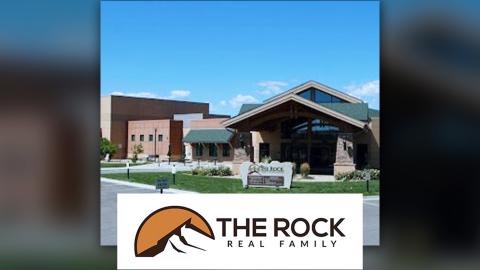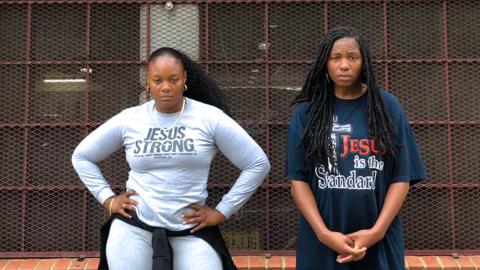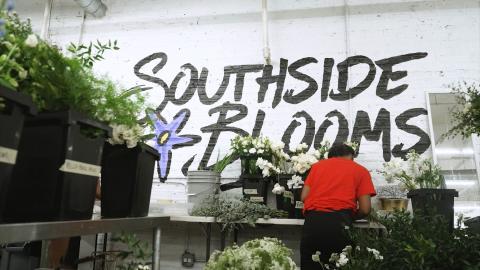Fixing a Broken System: Is Ending Cash Bail the Answer?
Cash bail is used as a guarantee that a defendant will return to court for hearings or trial. While there are growing calls to reform the system, some say it pits the need for safety against the rights of the poor.
In 2010, New York police arrested Kalief Browder for allegedly stealing a backpack in a Bronx neighborhood. Browder, who was 16 years old at the time, spent the next three years behind bars awaiting trial, something that never happened because Browder ended up taking his own life.
His case points to a common problem for many who can't afford bond.
"What we have right now is a system where too many people are in jail before they're convicted of an offense," Kate Trammell, Vice President of Advocacy at Prison Fellowship told CBN News.
"I don't think you can say concretely from the numbers that everyone in jail is a criminal and if they're awaiting trial in jail then releasing them is dangerous," said Trammell.
According to The Civil Rights Implications of Cash Bail, a report by the US Commission on Civil Rights, more than 60 percent of defendants are detained pre-trial because they can't afford to post bail.
Those numbers have moved several states to take action.
For example, Illinois recently passed the "SAFE-T Act," legislation aimed at ending the state's cash bail system. On Saturday, the Illinois Supreme Court halted that law from taking effect on Jan. 1. The law would do away with the state's cash bail system, but that's controversial because it would allow suspects charged with felonies, including second-degree murder, aggravated battery, and arson, to be released without bail.
While supporters say the current bail system proves unfair to low-income defendants, Illinois law enforcement officials and prosecutors argue that it will let dangerous criminals back on the streets while sending the message that people can get away with breaking the law.
"Our hands will be tied. The police officers' hands will be tied. What you see in Chicago we'll have here," said James Glasgow, Will County State Attorney. "I won't be able to hold anybody in jail longer than ninety days if they demand trial and at the 90th day they get out – no matter what crime they committed. It's going to be literally the end of days."
Pastor Garland Hunt of The Father's House in Atlanta once served as president of Prison Fellowship and on the Georgia state board of pardons and paroles.
He says while there are flaws in the criminal justice system, cash bail is needed in cases involving major crimes.
"If you've been consistently having assault charges, violent homicides and all this, trespassing, kidnappings, rapes, those kinds of people need more accountability because they also become a greater risk after bail – they could run, they could not come back," Hunt told CBN News.
As a former magistrate, Trammell is familiar with how the cash bail. She says low-income people can't always pay cash bail and end up having to stay in jail until trial, something she believes creates a two-tiered justice system.
"Money is not a great way to determine risk," Trammell explained. "So, you could have someone who is high risk who can pay a high sum to get out and you can have someone who is low risk who just doesn't have access to cash."
Trammell also pointed out other solutions that are fairer that don't raise safety concerns.
"Jurisdictions across the country are testing things like text reminders," she said. "Often people fail to appear for court for a variety of reasons that don't include committing any crime. So things like text reminders for low-risk defendants help them get to trial on time and not get deeper in the system."
According to the Prison Policy Initiative, there are also stark racial disparities surrounding pre-trial detention rates.
"In large urban areas, young black felony defendants are about fifty percent more likely than white defendants to be held pretrial," the group said.
"People carry their biases into the courtroom – whether it's public defender, whether it's the district attorney, whether it's a judge," said Hunt. 'And so, when the biases are there; could be even law enforcement – that's because we're all human – we bring our humanity into whatever our field is."
Hunt said the media's portrayal of minorities also adds to the problem.
"When they show a lot of bad things that are happening, violent things happening, usually it's about 60 to 70 percent black faces," Hunt explained.
He added, "So, what happens in the mind of law enforcement, politicians, DAs, judges are, that that's where the trouble is as opposed to a maybe a person in suburban area? Maybe they were driving drunk but they're driving a nice car, it's a different environment."
Those are all reasons why Hunt believes the church's voice is needed for healing and confronting inequities in the system.
"The fact that we use incarceration as much as we do – we're not talking about trying to change people," said Hunt. The cycle of recidivism is like 60 percent after three years – goes right back into the system. So how do we adjust that? That's the responsibility of not only the criminal justice system but also the church."
It is a sentiment that Trammell shares.
"My faith compels me to have an answer for them even if that answer is just coming alongside them and helping them through the process that is the justice process," said Trammell.
It is a process that many agree should provide safe communities and equity for all Americans.



